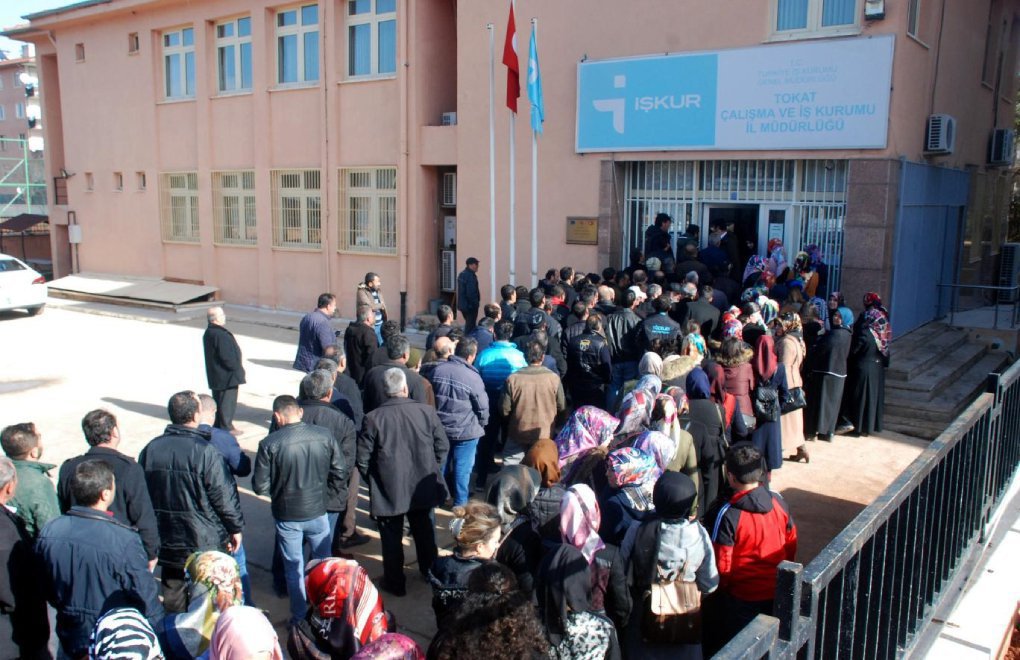Click to read the article in Turkish
The Young Unemployed Platform has released a "Report on Unemployment and Employment in November 2021".
Dr. Murat Kubilay, the Spokesperson for the platform, has noted that the report defines "narrow unemployment" as the ones who applied for a job in the last four weeks, are ready to start working in two weeks, but cannot find a job. It defines "broad unemployment" as the ones who have lost hopes for finding a job and are ready to work despite not making an application.
Referring to the official statistics of the Turkish Statistical Institute (TurkStat), the report has shown that the narrow unemployment rate in the 15-24 age group is 22 percent: "In fact, there is a broad youth unemployment of 31.8 percent, which is much higher than narrow unemployment."
The Platform has also indicated that as a result of the increasing education level, difficulties in finding a job and the increasing life expectancy, youth unemployment extends well into 35 years of age.
There are currently 2 million 379 thousand young people who are unemployed in Turkey according to the definition of narrow unemployment while this number increases to 3 million 806 thousand young people when unemployment is broadly defined.
Over 670 thousand have lost hopes
The report of the Young Unemployed Platform has found that since 2017, Turkey's loss of young labor force has been 398 thousand as a result of the economic crisis and the COVID-19 pandemic.
The number of young people who have totally lost their hopes for finding a job due to the unfavorable conditions of the labor market and been excluded from the workforce has been 673 thousand.
According to the report, the number of young people who do not make an application due to low chances of finding a job, who are actively looking for a job, but cannot start working immediately and who are ready to start working if they find a job has reached 754 thousand.
In addition to the unemployed people in the 15-34 age group, 10 million 423 thousand young people are not in the workforce. Apart from 995 thousand unemployed university graduates, 1 million 257 thousand graduates are not even in the workforce, the report has shown.
The highest gap between the participation in the workforce among men and women is at the level of primary and lower education, where 4 million 46 women are not part of the workforce in Turkey.
According to the report, 970 thousand university graduate women are not looking for a job despite their high education level, which manifests that the women-men gap in the participation in the workforce does not get narrower despite the high education level.
While 3 million 180 thousand men do not enter the workforce in this age group, this number is 7 million 243 thousand for women.
1 million unemployed university graduates
The Young Unemployed Platform has noted that the big increase in the number of graduations in this period has led to unemployment among university graduates. With 19.6 percent, one out of every five university graduates are unemployed in Turkey, according to the report.
In a similar vein, the increase in the number of universities in the country has led to an increase in the number of university students who work. The starting rate is at the level of minimum wage and sometimes lower than this level. Moreover, unregistered employment is also highly widespread. Several young people work not in their fields, but as unqualified workers.
The report has also underlined that graduating from a university does not guarantee employment in Turkey: Of the 6 million 327 thousand graduates, only 4 million 77 thousand have been able to find a job.
As a result of the failure to offer enough employment opportunities, the number of unemployed university graduates has increased to 995 thousand. Most of them find jobs outside their fields of specialization.
In addition to the increase in the number and rate of unemployed people, the period of unemployment is also on the increase. 492 thousand young people have been looking for a job for over a year. This number is 233 thousand among university students. (HA/SD)





